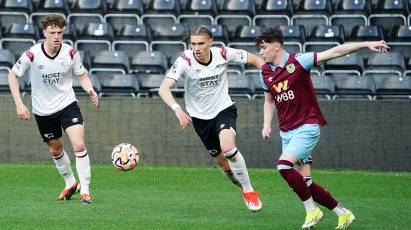Bobby Davison is one of the most prolific goalscorers to have ever pulled on a Derby County shirt and is part of an elite list to have scored over 100 goals for the club.
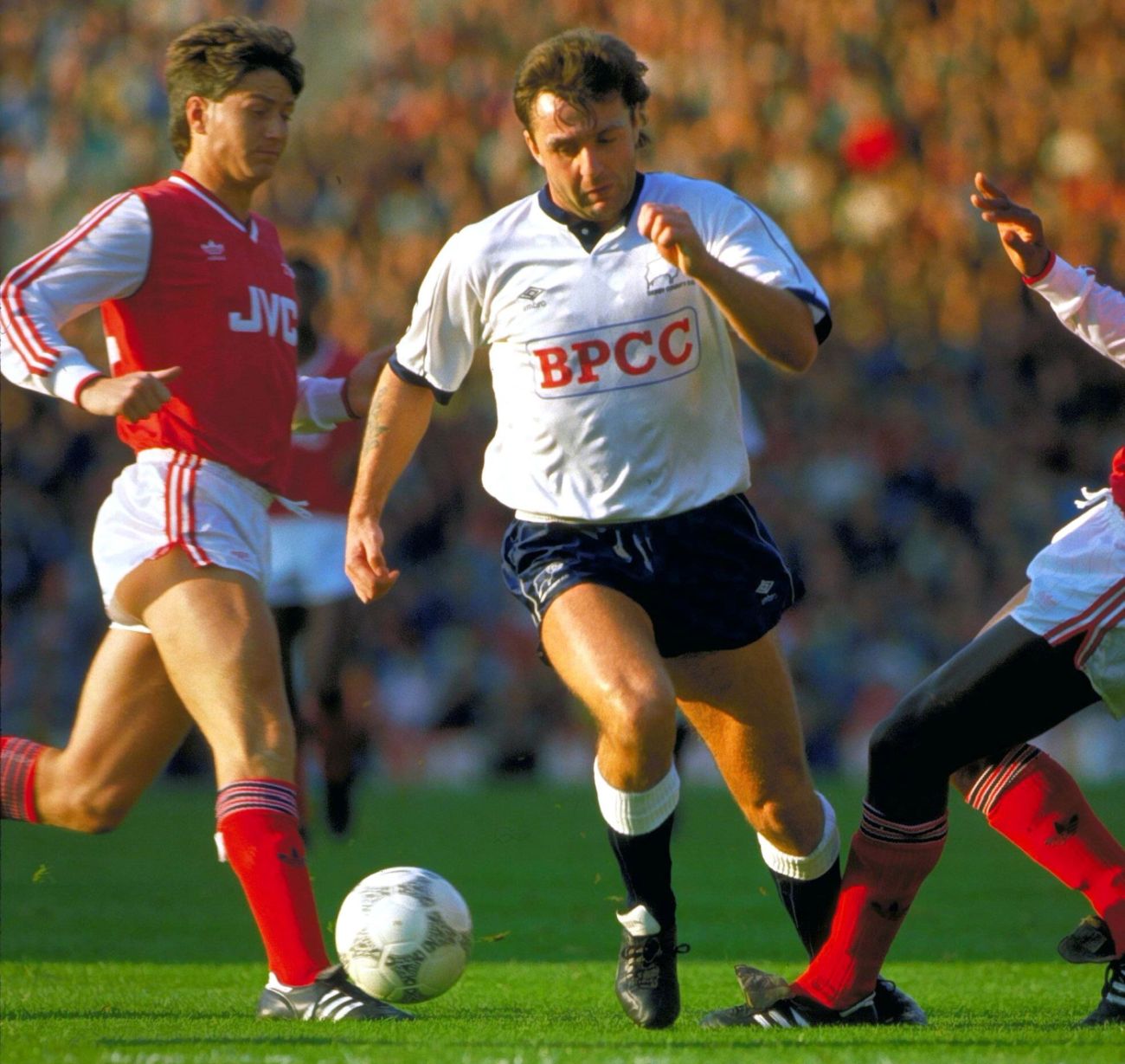
His record of 106 goals in 248 appearances is a hugely impressive statistic and his uncanny habit of finding the back of the net saw him firmly established as a Baseball Ground favourite in the 1980s.
Davison joined Derby following a prolific spell at Halifax Town in the early 1980s, after starting his career at Huddersfield Town.
Peter Taylor, who always had an eye for a player, secured his services for a bargain fee of £80,000.
From that point, arriving in his early 20s, Davison never looked back.
Between December 1982 and November 1987, he rattled home 98 goals in 238 appearances for Derby.
Notably, his goals were instrumental in Derby’s rise from the Third Division to the top-flight during their back-to-back promotions in 1985/86 and 1986/87 under Arthur Cox.
He was the Rams’ outright top goalscorer for four seasons in a row before departing for Leeds United for £350,000 in 1987, before he returned for a loan spell in September 1991 which saw him score eight times in ten outings.
Crucially, his loan spell saw him surpass the 100 goals mark and he proudly sits tenth in the club’s all-time goalscorers chart.
Davison thrived on the buzz of putting the ball into the back of the net and says he loved nothing more than a one-on-one battle with the opposing goalkeeper.
“I was delighted to be given the Merit Award by the former players’ association a few years ago and I hadn’t seen my goals for years and years – so when they were shown on the screens in the room it was fantastic,” he told RamsTV Meets.
“There were some that I had forgotten about and it was great to recall some wonderful memories by watching them. It seems a long time ago now that I joined the club. I have fantastic memories, though.
“From a striker’s point of view tap-ins gave you a buzz, but I loved the one-on-ones when it was just you against the goalkeeper and you would slide it in, in the mud at the Baseball Ground of course!
“I always enjoyed the goals where you used to get a tap-in from inside the six-yard box too. They were the best ones for me, where you’re sliding in to get on the end of a ball whizzing across the penalty area with your outstretched leg or a diving header.”
With the juices flowing, Davison says his favourite Derby goal came against Leeds in May 1987.
Derby’s 2-1 win over their old rivals secured a second successive promotion so, understandably, Davison has nothing but great memories of that afternoon at the Rams’ former home.
“My father sadly passed away a few weeks ago and he had a picture on his wall of me scoring a header for Derby, ironically against Leeds United, and Mervyn Day was the goalkeeper,” he said.
“It was at the Baseball Ground and you can see I am up above Mervyn and getting my head on it. He took me out but I wasn’t bothered. That’s one of my favourite ones and it secured promotion for the team as well.”
Davison says scoring goals was his job and added: “I always say that every goal that you score is a good one. From a personal point of view, I always say I never scored a bad goal.
“That’s not being big headed, it was just my job to score goals. I used to count the ones I scored in training as well – so I scored about 5,000! Strikers count all their goals, even in training, believe me.
“I enjoyed all of the goals I scored, especially at the Baseball Ground. The one against Leeds was great and I also got one against Plymouth Argyle that was memorable too.”
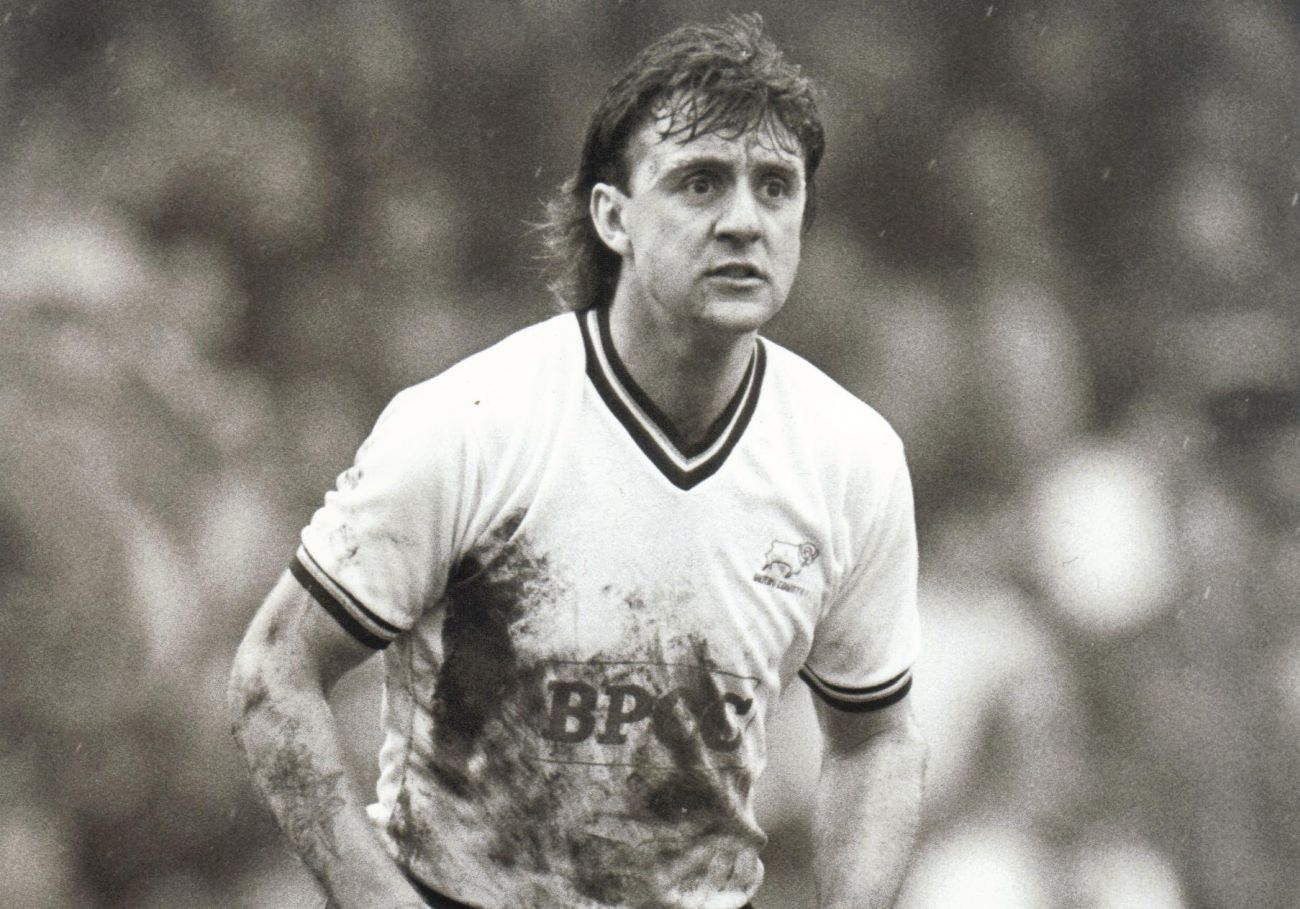
Winding the clock back to when he joined Derby in 1982, Davison was on the verge of moving to Arsenal.
However, the prospect of playing first-team football from the off was what made up his mind.
He’d been rattling in the goals at Halifax and he had shot onto Derby’s radar after finding the net against them in the League Cup during the early stages of the 1982/83 campaign.
“I’d scored some goals against Derby for Halifax in the cup, which probably helped me,” he recalled.
“Halifax won the first leg 2-1 and then I remember coming to the Baseball Ground for an evening game; we lost 5-2 and I managed to score again. Playing at a full-house was fantastic and perhaps those goals put me on the radar.
“I scored a hat-trick against Wimbledon in the game after that as well, which was when they were the Crazy Gang under Dave Bassett. Arsenal were watching me and I had a phone-call asking me to go down there for a few weeks on trial. Terry Neill offered me a contract, but at the same time Derby were in contact with Halifax too.
“I was actually in Terry Neil’s office when I had a call from Halifax about Derby. The way Derby put it to me, I was going to go straight in the team. In a way, Arsenal suggested I would be a fringe player if you like.
“At that age, I felt I had to take the chance at Derby and I am glad I did. It was a beautiful place to live and I have fantastic memories of playing at the Baseball Ground and my only daughter Jessica was born in Derby too.”
While it was Taylor who brought Davison to Derby, his best form came under Arthur Cox.
Cox took charge following Derby’s relegation to the third tier back in the summer of 1984 and quickly sought about reviving the Rams’ fortunes.
Davison recalls the immediate impact that the new manager made on the rest of the squad.
He said: “Straight away his enthusiasm for life and football was immense and it rubbed off on everybody.
“Nobody wanted to be last in the dressing room when we came in as Arthur would talk about Peter Beardsley, Chris Waddle and Kevin Keegan all the time, who he had worked with at Newcastle United.
“He was a great guy and just what Derby needed at that time. Training livened up and he brought in younger players as well and it took the club to the next level.
“Arthur got the money from Kevin Wilson’s departure which allowed him to reinvest in the squad and rebuild things. I remember we added some good players to help us kick on.”
He added: “We did have an aging team when we got relegated. We had some good players and perhaps time was catching up on them.
“Things had to change and we needed to move on with the times. Maybe we had to go backwards to move forwards, which ultimately we did.”
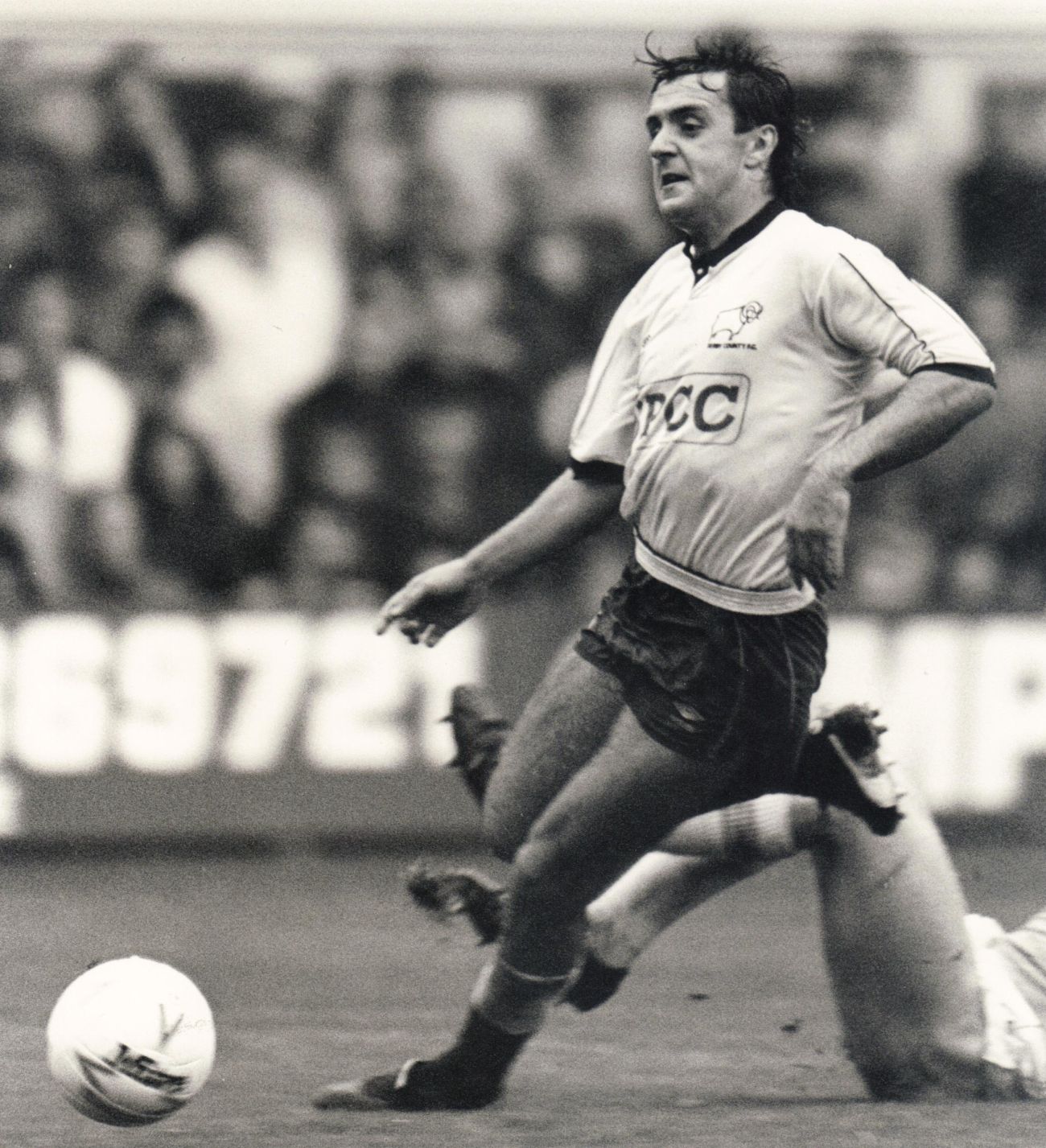
The back-to-back promotions provided Davison a real insight into how much it meant to the local area to have a successful side.
For example, Derby started their 1985/86 campaign in front of 11,000 fans at the Baseball Ground against AFC Bournemouth, but in their final home game of the campaign against Rotherham United – as they went to secure promotion – over 21,000 supporters were in attendance.
And the knock-on effect on the local businesses made Davison sit up and take notice.
“I probably didn’t get what it meant to everyone, but I did in the end,” he explained.
“I had a sponsored car from one of the local garages and I was speaking to the guy who presented me with the keys.
“He told me that his car showroom was usually busier after a Derby win, with dads coming out with their families to look at a new car. At the same time, he admitted that if Derby lost, you might as well not bother opening up.
“That stuck in my mind. It made me realise how the fans react and if you win it becomes a happy weekend. With players, it can be a bit different but that was an eye-opener.”
There are no hard feelings from Davison about his departure in the 1987/88 campaign to Leeds.
He had scored one goal in 13 games, in a 2-1 win at Norwich, as the Rams adjusted to life in the top- flight and understood Cox’s decision.
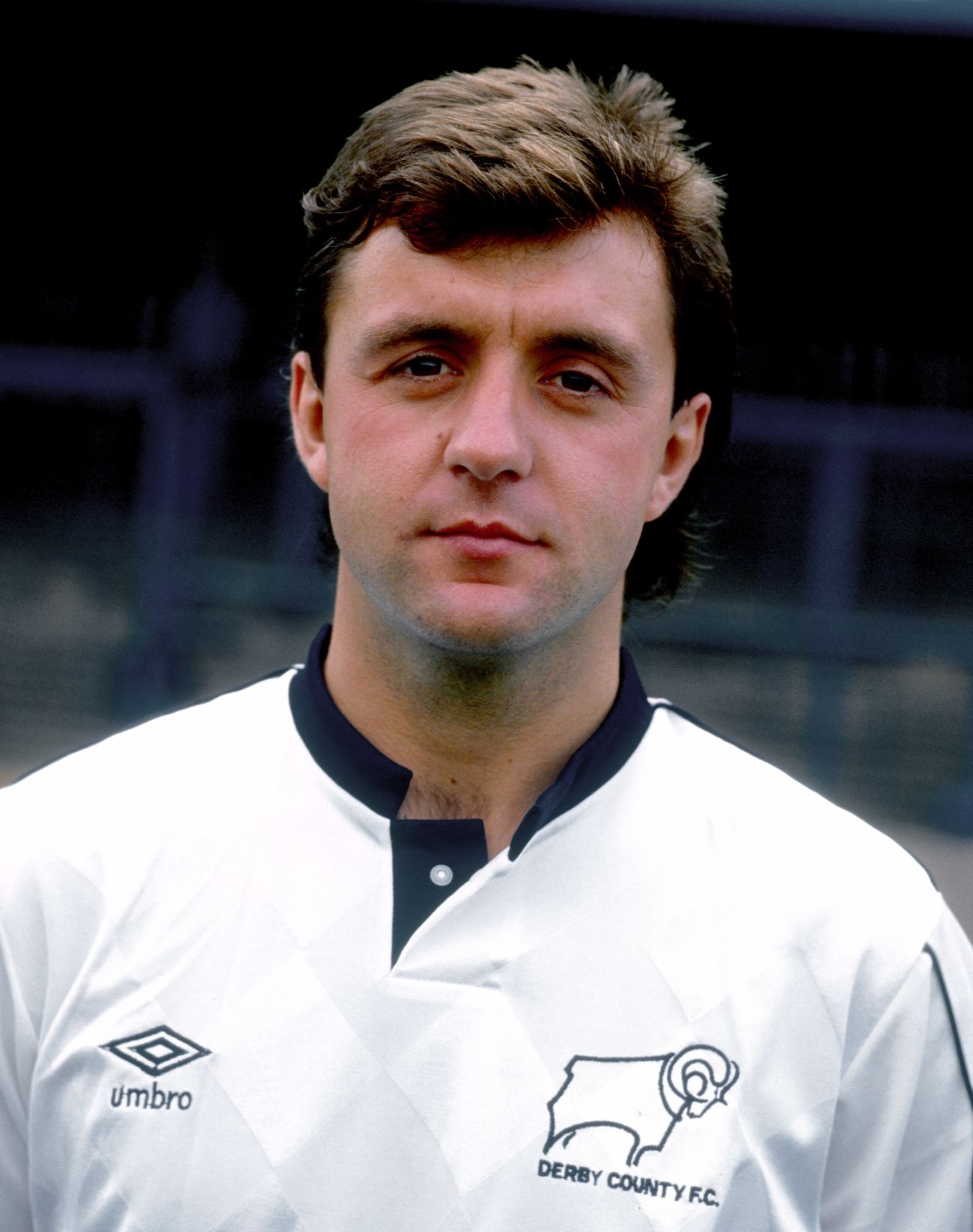
“Being on the other side as a coach I can see it,” he said when discussing his departure.
“You have a player or players that do you a job (at a certain time or level), but you want to get someone better. At the time I probably felt I wasn’t wanted and pushed out, but when your time somewhere is coming to an end you just have to accept it.
“I knew the team was moving going on and to be fair I probably would have stayed if it wasn’t for the fact it was Leeds that came in for me, as I supported them growing up. They were in the same situation as Derby were when I went there and it followed a similar path too.”
On his brief loan return in the 1991/92 season which went on to see him surpass the 100 goal mark for the club, he added: “After 20 minutes of my first game back I scored against Brighton at the Baseball Ground and that felt good.
“I had a good run and I can’t tell you how happy I was when Howard Wilkinson called me to say Derby wanted me back on loan.”
Davison says Archie Gemmill was a huge influence on his career at Derby.
The Scotsman was in the latter stages of his playing days when Davison first joined the club - but he says the midfielder was a shining example to everyone on and off the pitch.
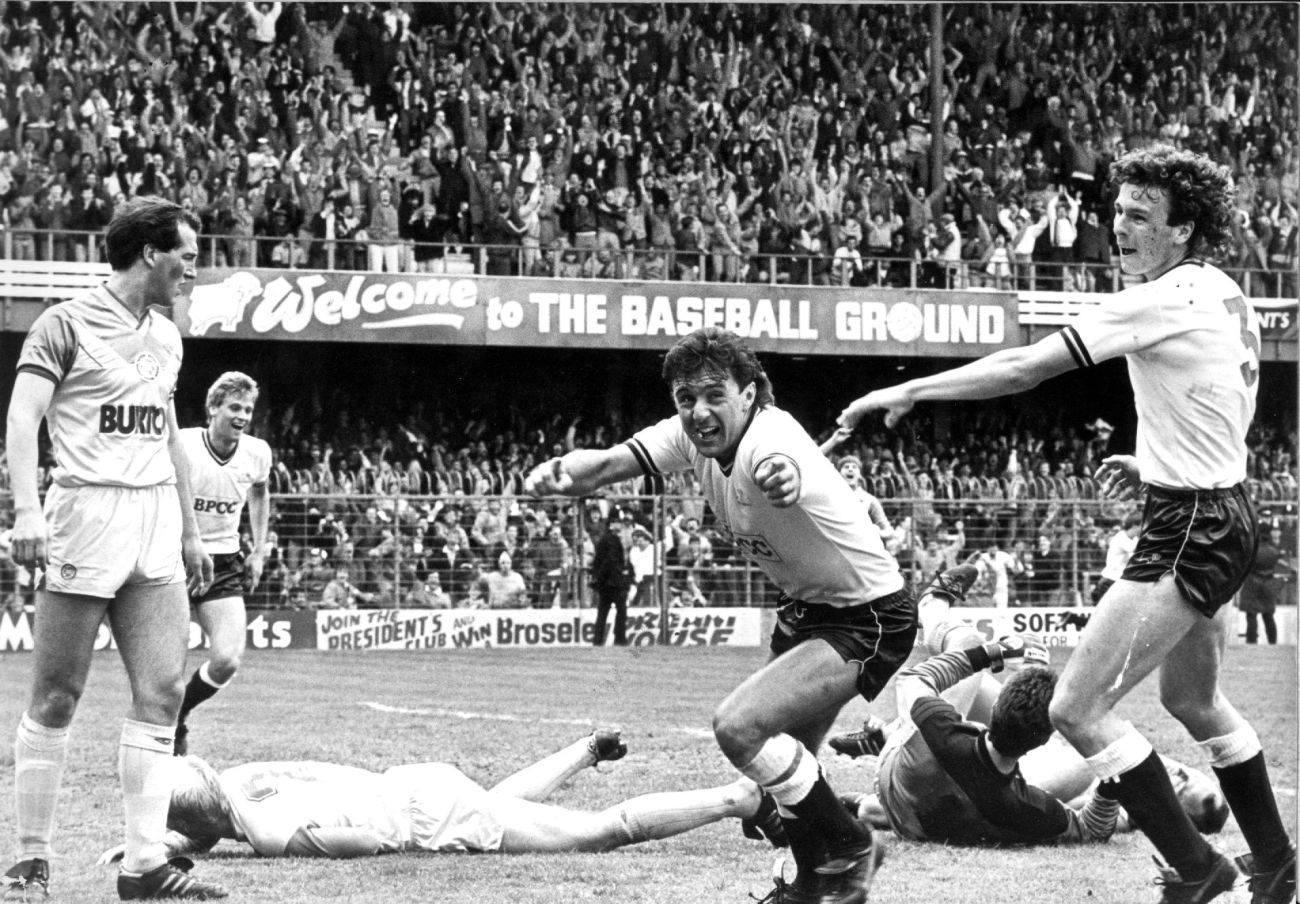
He said: “When I joined Derby we had a bit of an ageing team, as I mentioned, with a sprinkling of youth in there.
“Archie was a massive influence and what he did in the game was brilliant; he was number one in my career. At the age of 35, his fitness levels and the shape he was in was so impressive. I had the utmost respect for him.
“He looked after me when I signed, took me for a coffee and things like that. His influence in training was fantastic and he was a great professional.
“I still think of how he trained and played the game; he wouldn’t let anyone have below par games and he was immense. Everyone who played with him in his prime are lucky people.”
Gordon Strachan and Roy McFarland are two other players Davison highlighted when picking the biggest influences on his career.
He added: “At Leeds we had someone similar to Archie in Gordon Strachan, I was more established then though. Roy McFarland deserves mentioning too for his stature and position. He helped me a lot most days in training and I still remember things he said to this day.
“He felt I was one of the best one on one finishers he had seen so to hear that from him was something really special for me.”
Davison, now 60, also represented Sheffield United twice, Leicester City, Rotherham United and Hull City before ending his professional career in 1996.
He had a spell managing Ferencváros in Hungary in the late 2000s and, since then, has held a number of coaching positions within the English game.
Want to find out more about Bobby Davison’s career with the Rams and the back-to-back promotions under Arthur Cox? Watch the RamsTV Meets videos embedded in this article.


